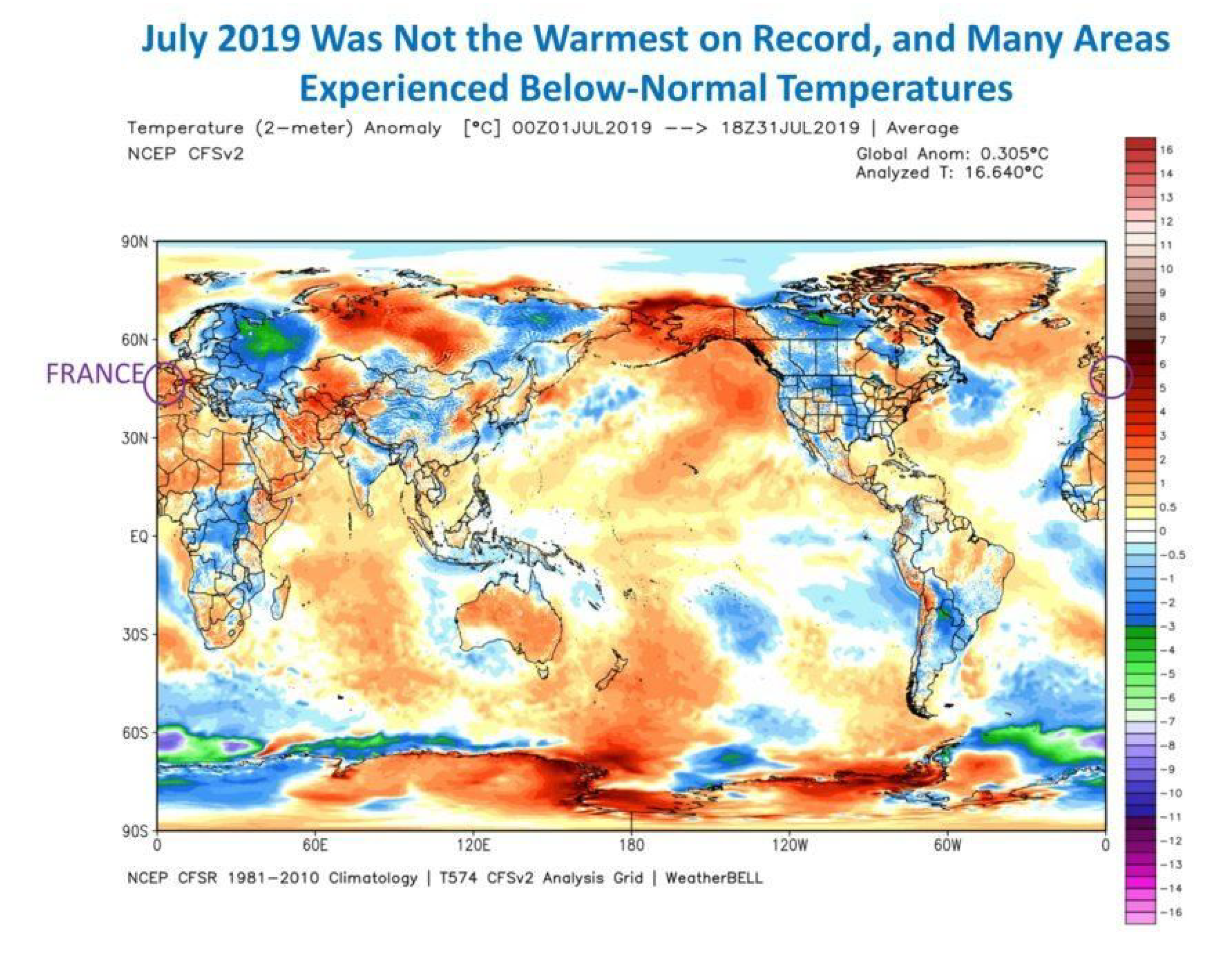Kerby Anderson
Last month was the hottest month ever recorded on Earth, or was it? A number of news stories proclaimed that the month of July 2019 was even hotter than July 2016. That made it the hottest month on record.
Climatologist Dr. Roy Spencer argues that July 2019 was not the warmest on record. He acknowledges that it was the hottest based on global average surface air temperatures. But he rightly explains that those temperature measurements have three major problems. Let me focus on just two of them.
The urban heat island effect has caused a gradual warming of land thermometer sites because of factors such as buildings, parking lots, air conditioner units, and vehicles of various types. The impact of this may be localized but still affects the overall temperature measurements.
Another measurement comes from ocean temperatures. But these apparently are uncertain due to changing measurement technologies as well as influence from ship engine intakes and buoys. We now have satellite measurements, but only since 1983.
He, therefore, recommends meteorologists use the reanalysis data that is available from NOAA’s Climate Forecast System. We can put a map on the Point of View website. If you do look at it, you will notice it matches with your weather experience last month. For example, much of the Midwest all the way to parts of Texas actually had cooler than normal temperatures in July.
So why don’t scientists track global temperatures using these reanalysis datasets? They only go back a few decades and don’t provide a longer look. The longest record of temperature data comes from surface thermometers.
Dr. Spencer believes that July 2019 was probably the fourth hottest month in the last four decades. Unfortunately, all the headlines said it was the hottest ever.
 Listen Online
Listen Online Watch Online
Watch Online Find a Station in Your Area
Find a Station in Your Area











 Listen Now
Listen Now Watch Online
Watch Online
